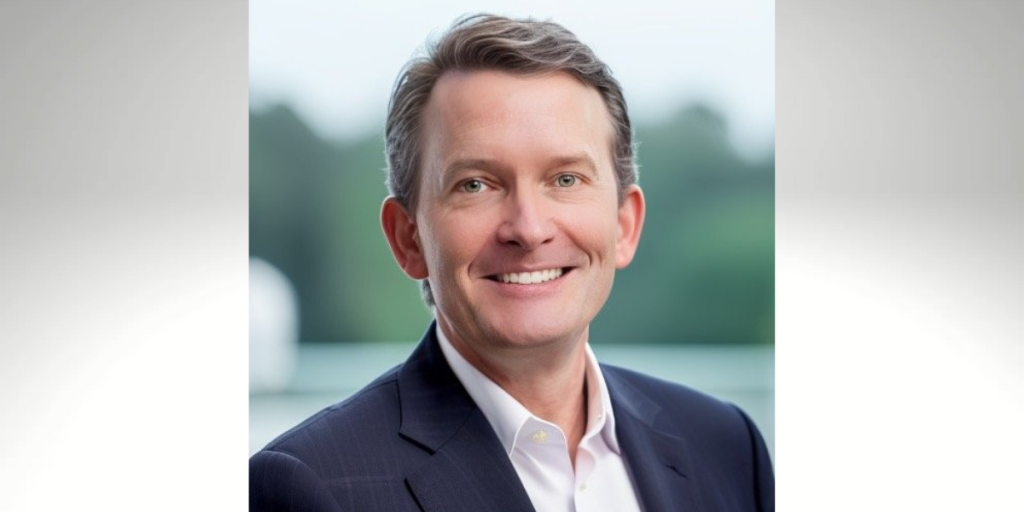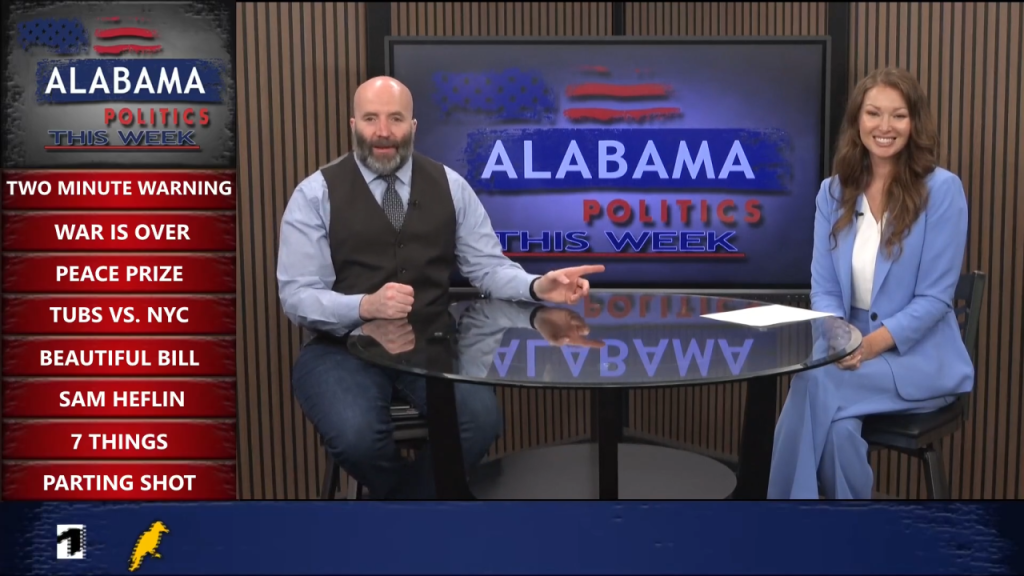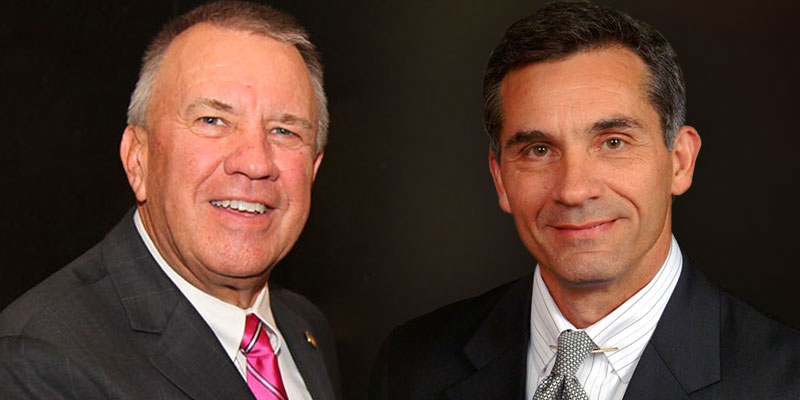
Listen to the 10 min audio
Read the transcript:
TIME OF DANGEROUS DIALOGUE?
TOM LAMPRECHT: Harry, Frank Bruni, who writes for The New York Times recently opined that, “We are in a dangerous place when it comes to how we view, treat and talk about people we disagree with. Madonna fantasizes about blowing up the White House, Kathy Griffin displays a likeness of Donald Trump’s severed head and so-called protests at Berkley, Evergreen State and Mulberry College erupt into violence and property destruction.” What’s interesting about these comments is Frank Bruni is a self-described gay liberal.
Harry, we see over and over again, civility and decorum are disappearing.
PUBLIC SQUARES STILL NEED TRUTH AND DECORUM
DR. REEDER: In its place: profanity and vulgarity-laced declarations and shouts, invectives and the loss of any civil discourse in the public square. Tom, as I mentioned in a previous program, I was invited to a forum concerning an ordinance that is being considered in a rather small southern town. One of the key aspects of the town is a university that’s there and I was told, of course, that the students were going to come and, likely, be protests and that there were plans to shout down the forum speakers.
I, literally, received a number of emails asking me to, “Consider whether you ought to come or not.” “Well, I’m going to come and I’m going to talk and I’m going to try to approach this in an appropriate way that honors the decorum that a nation that honors free speech ought to embrace.”
And so, I came and, let me say that, yes, there were a few hecklers but, by and large, it was well-done and the students were well-behaved but the fact that the shadow loomed over it… Trying to think back to my college days, whenever we would have discussions about matters of morality, ethics, and religion, there was, basically, the rules of decorum and public discourse in terms of how things are handled.
WHY THE EXTREME ZEALOTRY AND PROFANITY?
The shouting down, the yelling, the profanity, the marginalization – now, why is that there? Well, No. 1, you need to understand that there is a religious zealotry to the secular humanist position and the ruling out of any claims of divinity over life.
It comes back to, “We will not have God to rule over us and every man wants to do what’s right in his own eyes.” This becomes a zealous movement in which you want no competition – you want to rid the public square of any claims of divine majesty, divine sovereignty, divine authority over our lives – and that is a passionate commitment to remove that.
Therefore, anyone who comes as an ambassador of Jesus Christ or who comes with just general claims of religion is automatically dismissed. The fact that people are “incurably religious” is seen as a defect to eradicate in the world instead of a freedom to protect and, therefore, you want to clean out any references to religion in society.
And then this life that is lived out from under the claims of God, secular humanism – man is the measure of all things – that becomes something that is a passionate commitment and its success is the eradication of any competition of communication in terms of how we ought to be living and any notion that there is a “how we ought to live.” There is no “how we ought to live” – the only thing that ought to rule is, “I can do what I want to in life.”
Now, that’s nonsensical, it’s chaotic, it’s destructive but that position is so insensible and so irrational of secular humanism that it not only wants to eradicate any competitive ideas, it cannot stand the competition of ideas.
My father, early on, taught me something: The evidence of profanity is either the result of a weak mind or a weak argument. I would say that there may be an exception to that, but that is a generally factual observation. A weak mind – “I don’t have the ability to talk with you and so I’m going to verbally assault you” – or the argument is so weak – “I have no ability to win the argument so I want to remove the person that I’m talking with.”
ARE TRADITIONAL DEBATES DEAD ON CAMPUS?
TOM LAMPRECHT: To that end, Harry, Steve Salerno of The Wall Street Journal tells of a formal academic debate final at Towsend University back in 2014 in which students ignored the resolution on foreign policy to instead give a profanity-laden rant about racism in American society and they won the debate.
DR. REEDER: And, amazingly, that was given the first place prize. Tom, once again, let me just make the point: Either the person is incapable of the meaningful conversation, therefore, you resort to profanity and vulgarity and volume to shout people down, to marginalize them, to set them aside, to embarrass them and that’s the only way that you can win it.
That is also rooted in what we call the ad hominem attack – that is, you can’t deal with the concepts that are being talked about and you can’t deal with the arguments, so you attack the person. And, if you attack the person, you think you’ve won the day when, in reality, you haven’t won anything – you’ve just attacked someone verbally, but we have already noticed that verbal attacks eventually lead to the physical attacks upon people because they cannot enter into the discourse.
HOW TO DEBATE
On the other hand, communities and nations are blessed when there is decorum in the conversation. What keeps a boxing match from becoming a brawl? Well, it’s called “Lord Queensbury’s Rules.” Well, we ought to have rules for conversation as well.
Here’s what the Bible says to us: “Let no unwholesome word proceed from out of your mouth, but only such a word that is good for edification according to the need of the moment.” It certainly can be a word with passion. It certainly can be a word of contradiction to what the other person is saying in a discussion, but it’s ultimately for edification, coming to a conclusion, dealing with the ideas and attempting to expose ideas to the sunshine of a conversation with decorum and clarity.
We need to remember the people we talk to are made in the image of God and, therefore, ought to be treated with dignity and respect – that’s the way we ought to do it – so we need to become models of that. As our society descends into this loss of public discourse, we need to become both the models of public discourse, where our language and our communication – our volume, our tone – and everything that we say, right words in the right way at the right time for the right reason – that we need to become models of this.
“Well-chosen words are like apples of gold and settings of silver,” so we need to be those whose language is attractive, does communicate, “Yes, it’s not wrong to win the idea, but you want to win the idea in a way that you win people, even the person with whom you disagree.” I believe that such an approach to conversation in the public square over a period of time actually becomes winsome.
THERE CAN BE CIVILITY AND COMMUNITY-BUILDING
The forum that I was in this last week in which the warnings came, and because of the way the moderator handled it and the, by and large, because everybody – both pro and con on the ordinance that was being discussed and debated in the forum – as all of that was taking place, when people left, I have received many, many emails and comments – I love to hear this word – “It was a constructive time and we want to thank those who participated. Not simply the four speakers on the forum – we want to thank those who participated in the audience and in the after program of Q&A and discussions that went on as well.”
And people went away, some with the debate having changed their perspectives or added to it, but it was so good that people went away with a sense of accomplishment. We had a forum with decorum – that is the way we ought to live our lives day by day in conversation after conversation.
Tom, what a glorious privilege it is to win souls, not only with the words, but the way the words are spoken. And I do pray that God would allow that kind of discourse to be returned to our society.
Dr. Harry L. Reeder III is the Senior Pastor of Briarwood Presbyterian Church in Birmingham.
This podcast was transcribed by Jessica Havin. Jessica is editorial assistant for Yellowhammer News. Jessica has transcribed some of the top podcasts in the country and her work has been featured in a New York Times Bestseller.
Podcast: Play in new window | Download
Subscribe: RSS












